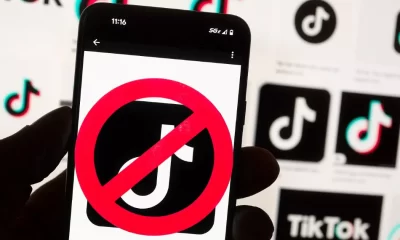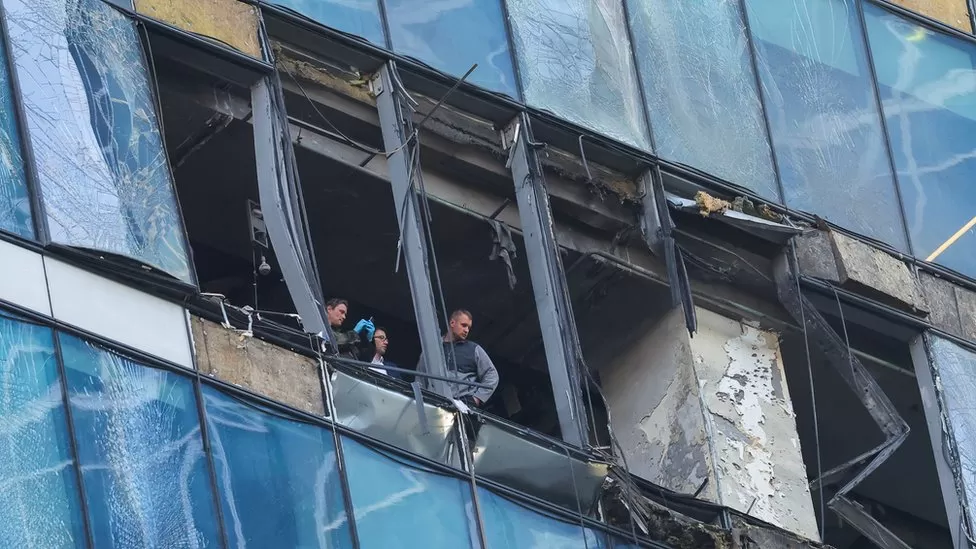In the heart of Moscow’s modern business district, Moskva-Citi, residents are coming to terms with the reality of drone attacks hitting their glitzy skyscrapers.
While the extent of the damage caused by the drones is relatively minor compared to the devastation faced by Ukraine in the ongoing war, the incidents have still rattled nerves in the Russian capital.
Witness accounts from the scene reveal a mix of defiance and anxiety. Some residents, like Arkady Metler, remain resolute, stating that there is no fear and that they will stick together through these challenges. However, others, like Anastasia Berseneva, express more concern and even consider moving away from the area after witnessing two drone attacks in quick succession.
Despite the attacks, many Muscovites have not directly experienced or even noticed the drones, making them feel relatively unconcerned. Some residents see the attacks as minor nuisances that cause only cosmetic harm to well-constructed buildings. This indifference might stem from the scale of the city and its ability to keep such incidents relatively isolated.
Experts suggest that Ukraine may be behind these drone attacks, using locally made drones since they lack the capability to strike Russian territory with Western-made weapons. Although the drones may not cause significant damage, they undermine the sense of security and raise questions about Russian air defenses and the government’s control over its territory.
With the realization that more attacks could occur, some businesses are capitalizing on this fear by offering home insurance policies that cover damage caused by “falling flying objects or their debris” like drones.
The incidents signal a new reality for Moscow, where the once-distant war now seems closer to home. As the tension persists, the city’s residents may have to adapt to living with the specter of drone attacks becoming more frequent in the future.



 Shows5 days ago
Shows5 days ago


 Shows2 days ago
Shows2 days ago


 News4 days ago
News4 days ago


 News5 days ago
News5 days ago


 News5 days ago
News5 days ago


 News5 days ago
News5 days ago


 News4 days ago
News4 days ago


 News4 days ago
News4 days ago












